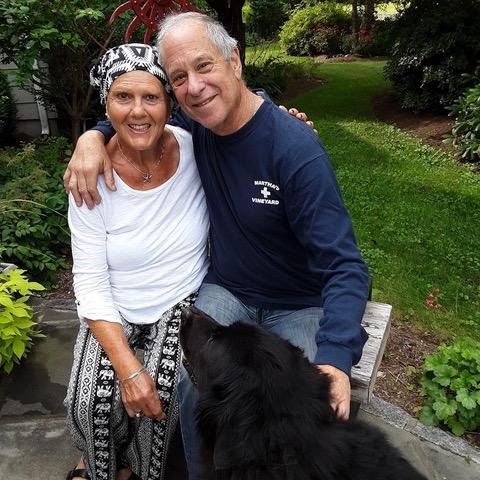
Dr. Paul Bluestein, the husband of cancer victim Lynda Bluestein, shares this commentary urging passage of medical aid-in-dying legislation so she’s “not forced to go to Vermont to use its medical aid-in-dying law if that becomes necessary.”
The Bluesteins are Bridgeport residents.
On March 10, the Public Health Committee approved medical aid-in-dying legislation (SB1076) that would allow terminally ill adults to have the option to peacefully end unbearable suffering at the end of life.
After debating this issue 15 times since 1994, I hope our state lawmakers finally pass this urgently-needed legislation this year, so my wife Lynda Bluestein, who has late-stage ovarian cancer, and I are not forced to go to Vermont to use its medical aid-in-dying law if that becomes necessary.
For the past 21 months, despite the toll taken by her cancer and chemotherapy, I have watched Lynda fight to live as much as she can and as well as she can. But one day, that won’t be possible anymore. When that day comes, she wants to be able to say “enough” and die peacefully, with dignity, surrounded by her family. She certainly doesn’t need or want a state senator or state representative hovering over her bedside.
The simplest of facts is that legislation to allow medical aid in dying is supported by a wide majority of Connecticut voters in every demographic: Democrats (84%), Republicans (64%), Independents (74%), younger people (80%), older people (73%), Catholics (69%), Protestants (70%), those with no religious affiliation (89%), white voters (77%), people of color (72%) and people who have a disability (65%). The minority of opponents don’t have the right to spread misinformation and preempt the most difficult medical decision that anyone could make, in consultation with their family and doctors.
A majority of physicians also support medical aid in dying, including me. Doctors like to think of themselves as healers, and we are. But there are times when there is no more healing possible. When that is the case, we need to be honest and compassionate and respectfully heed the wishes of our dying patients.
Since 1994, Washington, D.C. and 10 states have authorized medical aid in dying. These 11 jurisdictions represent more than one in five U.S. residents (22%) and have decades of experience with this end-of-life care option, starting with Oregon in 1997, without one documented case of misuse. More stringent than Oregon’s law, the Connecticut medical aid-in-dying legislation includes more than a dozen safeguards including two written requests, two witnesses to both requests, and a mandatory mental health evaluation.
Over nearly three decades, this compassionate legislation has never even once been permitted to reach the floor of the General Assembly for a vote. Isn’t it time, way past time, to finally allow terminally ill patients the right to choose how and when they will die?

